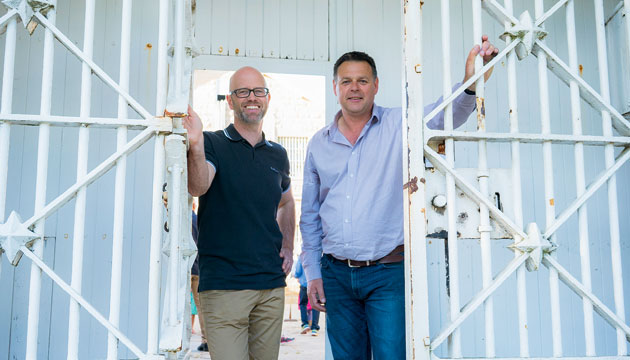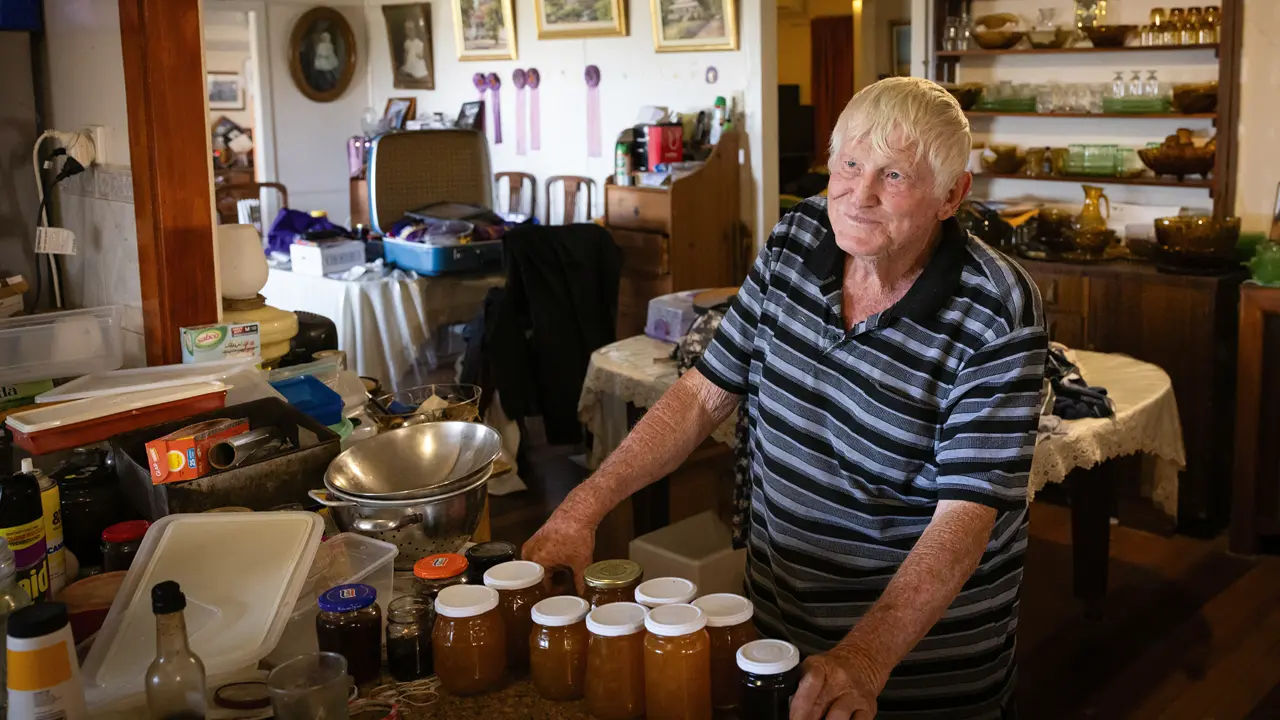The Australian Centre for Rural Entrepreneurship is a social enterprise that creates jobs and attracts residents, while putting money back into towns.
Story Genevieve Barlow Photo Jerun Terlaak
Irony doesn’t come any richer than turning a former gaol into a training ground for entrepreneurs, specifically bush entrepreneurs. That’s what Matt Pfahlert and Clayton Neil are doing in north-east Victoria. The former Beechworth Gaol that once held notorious bushranger Ned Kelly, his mum Ellen and brother Dan is now headquarters to a not-for-profit enterprise they’ve established called the Australian Centre for Rural Entrepreneurship (ACRE). Where crims cowered, people with a dream to build businesses that create community good are now flowering as the pair work with locals to build a can-do culture, not only in Beechworth (population almost 4000) but across rural and regional Australia.
For Matt, 50, and Clayton, 42, it’s all about showing how a community can buy an asset, in this case a gaol, and use it to stimulate business that returns profits that can be re-invested in the community. Instead of setting up private businesses in which individuals pocket profits, it’s about creating community-owned social enterprises that create jobs and lure residents. It’s called asset-based community development and it encourages entrepreneurialism and social enterprise. The former gaol is their demo site.
“Just as the Henty Field Days is for agriculture, this gaol is like an ongoing field day for social enterprise and rural entrepreneurship,” Matt says. Anyone can come here, kick the tyres, talk to the people involved and see it happening in real life.”
In 2013 ACRE became incorporated. Two years ago, locals pooled $1.7 million in personal funds and ACRE borrowed another $1m to buy the gaol and create establishment funds. This financial year, ACRE is projected to earn $900,000 through a range of enterprises. A law firm has moved into the gaolers’ area, where ACRE is also headquartered, and five other businesses – catering, jail tourism, cycling tourism, a cafe, and bike maintenance and repairs – are spread throughout. Collectively, 30 people work there. That number is expected to grow with more co-working space soon to be let and a 23-lot cycle eco-village, a top-class tourism venture centred on Ned Kelly and a conference centre all in planning phases. Within the golden granite walls of the gaol, which was built 1858–1864, there have been markets, a Celtic Festival and gatherings of some of the world’s smartest minds dedicated to re-energising rural and regional areas.
This story excerpt is from Issue #123
Outback Magazine: February/March 2019










